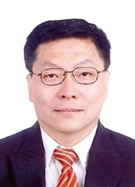Principal investigatorName: Bing SunDistinguished Adjunct Professor from CAS , PhD, Distinguished Adjunct Professor from CAS
Position: Affiliation: School of Life Science and Technology, Shanghai Institute of Biochemistry and Cell Biology, CAS
Honor: Education Background:
Working Experience:
Group Introduction Research Area:
Molecular Immunology, Molecular Virus
Research Interests:
1.We used single-cell RT-PCR technology to prepare fully human antibodies and we have developed antiviral and tumor antibody drugs. The laboratory has successfully generated humanized anti-tumor CD47 antibody, and fully human neutralizing antibodies against Influenza, RSV, HCV and Novel-coronavirus 2019 . 2.The knock out mice with ECM1 gene were used to induce spontaneous liver fibrosis. To study the regulation mechanism of ECM1 on the activation of hepatic stellate cells and develop new anti-liver fibrosis drugs. Research Achievement1. Antibody drugs play an important role in tumor treatment and viral infections. The laboratory uses single-cell technology to isolate antigen-activated B cells from human peripheral blood, and generates specific fully human neutralizing antibodies against influenza virus, RSV, HCV and novel coronavirus-2019. It is currently cooperating with companies for translational research and clinical applications. 2. On the basis of nearly 15 years of work in the laboratory, it was innovatively discovered that ECM1 (extracellular matrix protein 1) is secreted by liver parenchymal cells and inhibits the maturation of TGF-b in the liver sinusoids, thereby inhibiting hepatic stellate cells. ECM1 can inhibit the occurrence and development of liver fibrosis, and can be used as a drug target for anti-liver fibrosis. Representative Publications (*First Author, # Corresponding Author)
MonographPatentFundingAwards
Research AchievementGroup Member and Photo |



